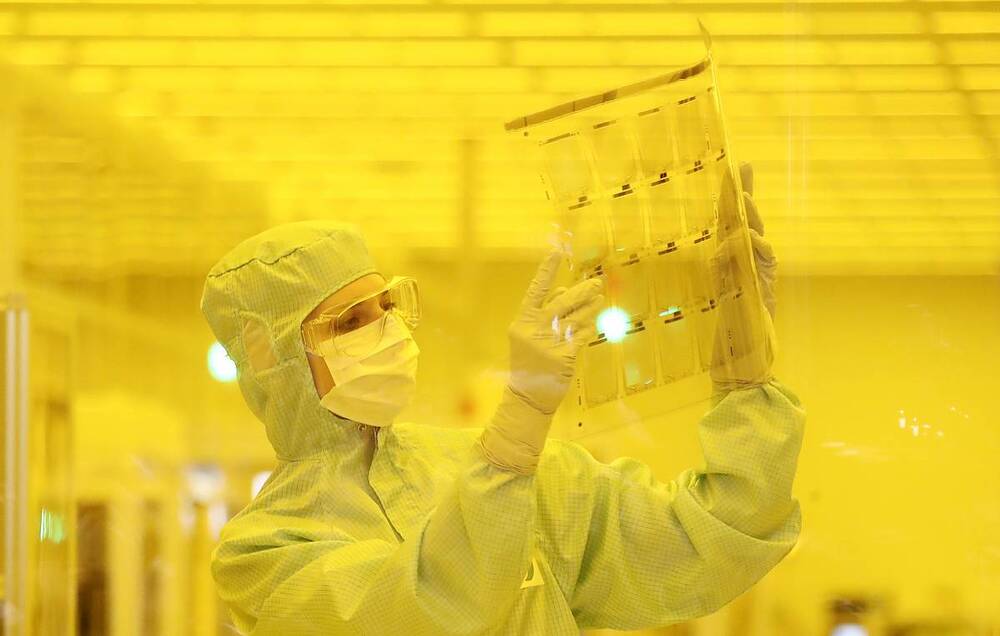Researchers have identified genes influencing muscle aging, including USP54, using AI analysis of gene expression data. These findings may lead to drug discovery and exercise-based interventions targeting muscle mass preservation.



Protecting Human And Animal Health — Dr. Tristan Colonius, DVM — Chief Veterinary Officer & Deputy Director for Science Policy, Center for Veterinary Medicine (CVM), U.S. Food and Drug Administration (FDA)
Dr. Tristan Colonius, DVM is the Chief Veterinary Officer and Deputy Director for Science Policy at FDA’s Center for Veterinary Medicine (CVM — https://www.fda.gov/animal-veterinary).
Dr. Colonius previously worked in various positions at FDA, including as Deputy Chief of Staff to Commissioner Dr. Robert Califf and as an International Policy Analyst.
During his career at FDA, Dr. Colonius has been working on numerous initiatives including the Animal and Veterinary Innovation Agenda, One Health, Intentional Genomic Alterations in animals, and zootechnical animal feed substances (ZAFS) among many other programs at CVM.
Prior to joining FDA, Dr. Colonius held positions in the US Senate and US Department of Agriculture.
Mike Kelly is President & Chief Executive Officer of NervGen Pharma Corp. (https://nervgen.com/), a clinical-stage biotech company dedicated to developing innovative treatments to enable nervous system repair in the settings of traumatic injury and disease.
NervGen’s lead drug candidate, NVG-291, is being evaluated in a Phase 1b/2a clinical trial in an initial target indication, spinal cord injury. NervGen has initiated preclinical evaluation of a new development candidate, NVG-300, in models of ischemic stroke, amyotrophic lateral sclerosis (ALS) and spinal cord injury.
Mr. Kelly brings three decades of pharmaceutical experience playing instrumental roles in the creation, development and strengthening of several companies.
Most recently, Mr. Kelly served as President of US Operations for Adapt Pharma, Inc. from March 2016 to June 2019, and played a key leadership role in the development and commercialization of NARCAN (naloxone HCl) Nasal Spray in the US and Canada and in the eventual sale to Emergent BioSolutions for US$735 million.
Prior to his tenure at Adapt Pharma, Inc., Mr. Kelly served as the Chief Executive Officer and a Director of Covis Pharmaceuticals, Inc., where, along with its European affiliate, grew and sold the company assets for US$1.2 billion. Mr. Kelly was also a member of the founding management team of Azur Pharma Limited, a specialty pharmaceutical company, and later, following a strategic merger, served as the Senior Vice President of Sales and Marketing for Jazz Pharmaceuticals Inc. Mr. Kelly has also held various commercial and medical roles at Guilford Pharmaceuticals Inc., ViroPharma Incorporated and TAP Pharmaceuticals Inc. and has been a Director of ARS Pharmaceuticals Inc. since May 2019.
Mr. Kelly holds a Bachelor of Science in business administration from The College of New Jersey and a Master of Business Administration from Rider University.
The great George Church takes us through the revolutionary journey of DNA sequencing from his early groundbreaking work to the latest advancements. He discusses the evolution of sequencing methods, including molecular multiplexing, and their implications for understanding and combating aging.
We talk about the rise of biotech startups, potential future directions in genome sequencing, the role of precise gene therapies, the ongoing integration of nanotechnology and biology, the potential of biological engineering in accelerating evolution, transhumanism, the Human Genome Project, and the importance of intellectual property in biotechnology.
The episode concludes with reflections on future technologies, the importance of academia in fostering innovation, and the need for scalable developments in biotech.
00:00 Introduction to Longevity and DNA Sequencing.
01:43 George Church’s Early Work in Genomic Sequencing.
02:38 Innovations in DNA Sequencing.
03:15 The Evolution of Sequencing Methods.
07:41 Longevity and Aging Reversal.
12:12 Biotech Startups and Commercial Endeavors.
17:38 Future Directions in Genome Sequencing.
28:10 Humanity’s Role and Transhumanism.
37:23 Exploring the Connectome and Neural Networks.
38:29 The Mystery of Life: From Atoms to Living Systems.
39:35 Accelerating Evolution and Biological Engineering.
41:37 Merging Nanotechnology and Biology.
45:00 The Future of Biotech and Young Innovators.
47:16 The Human Genome Project: Successes and Shortcomings.
01:01:10 Intellectual Property in Biotechnology.
01:06:30 Future Technologies and Final Thoughts.
A team of scientists has discovered surprising connections among gene activity, genome packing, and genome-wide motions, revealing aspects of the genome’s organization that directly affect gene regulation and expression.

New research has found that a mineral found in Brazil nuts could be the key to stopping the spread of triple negative breast cancer.
Triple negative breast cancer can be hard to treat but is often manageable through therapy and surgery, unless it spreads to other parts of the body when it can become inoperable.
The study, funded by Cancer Research UK, suggests that limiting the antioxidant effects of selenium, a popular ingredient of multivitamin supplements found in everyday foods such as nuts, meat, mushrooms and cereals, could be the secret to controlling this form of the disease.

Tohoku University’s Dr. Le Bin Ho has explored how quantum squeezing can improve measurement precision in complex quantum systems, with potential applications in quantum sensing, imaging, and radar technologies. These findings may lead to advancements in areas like GPS accuracy and early disease detection through more sensitive biosensors.
Quantum squeezing is a concept in quantum physics where the uncertainty in one aspect of a system is reduced while the uncertainty in another related aspect is increased. Imagine squeezing a round balloon filled with air. In its normal state, the balloon is perfectly spherical. When you squeeze one side, it gets flattened and stretched out in the other direction. This represents what is happening in a squeezed quantum state: you are reducing the uncertainty (or noise) in one quantity, like position, but in doing so, you increase the uncertainty in another quantity, like momentum. However, the total uncertainty remains the same, since you are just redistributing it between the two. Even though the overall uncertainty remains the same, this ‘squeezing’ allows you to measure one of those variables with much greater precision than before.
This technique has already been used to improve the accuracy of measurements in situations where only one variable needs to be precisely measured, such as in improving the precision of atomic clocks. However, using squeezing in cases where multiple factors need to be measured simultaneously, such as an object’s position and momentum, is much more challenging.

As Canadians brace for “vitamin D winter”—months when the sun’s angle is too low to produce the vitamin in the skin—a McGill University study explains why vitamin D deficiency early in life is associated with a higher risk of autoimmune diseases.
During childhood, the thymus helps train immune cells to distinguish between the body’s own tissues and harmful invaders. A vitamin D deficiency at that stage of life causes the thymus to age more quickly, the researchers discovered.
The study is published in the journal Science Advances.

stores and retrieves important information, such as domain-specific knowledge and memories. One dimension of human memory is the ability to link various aspects of experience to specific life events.
Past studies have suggested that this memory-related process is supported by phase precession, which is a shift in the timing at which specific neurons are fired. Up until now, however, this hypothesis had not been confirmed experimentally.
Researchers at the University of California, Davis, Harvard Medical School, Toronto Western Hospital and Cedars-Sinai Medical Center recently carried out a study aimed at probing the relationship between phase precession and memory.